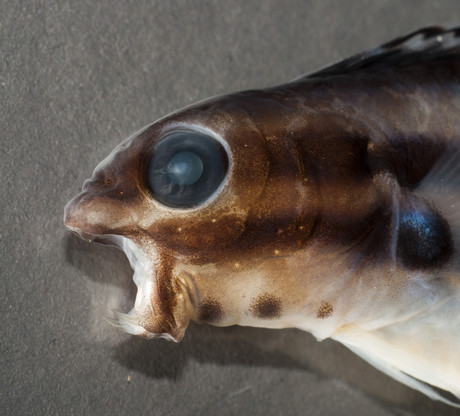Painkillers made from fish venom?

Venom is something that most people would prefer to avoid, but new research from the University of Queensland (UQ) has found that there is one type of aquatic venom that may actually prove beneficial.
The venomous fang blenny (genus Meiacanthus) is a popular ornamental tropical aquarium fish, native to the Great Barrier Reef. The fish uses an impressive canine delivery system to inject other fish with opioid peptides that inhibit pain, rather than cause it. This unusual venom acts on our opioid receptors in a manner similar to morphine. Associate Professor Bryan Fry thinks the colourful fanged reef fish may be the source of our next range of painkillers.
“Fang blennies are the most interesting fish I’ve ever studied and have one of the most intriguing venoms of them all,” he said.
“The venom causes the bitten fish to become slower in movement and dizzy by acting on their opioid receptors.”
The pronounced hypotensive effects induced by the venom peptides affect the coordination of afflicted animals, giving the fang blenny greater opportunities for escape. This is unique in the realm of aquatic venoms, where most spine-delivered fish venoms cause intense pain, disproportionate to the wound, in order to scare off potential predators and competitors.
“These fish are fascinating in their behaviour,” said Associate Professor Fry. “They fearlessly take on potential predators while also intensively fighting for space with similar-sized fish. Their secret weapons are two large grooved teeth on the lower jaw that are linked to venom glands.”
It was while studying the evolution of these fangs that Associate Professor Fry discovered the unusual tendency of this “chemically unique” venom and realised it could have potential in the pharmacological field. He believes the fang blenny’s unique venom “could be the source of the next blockbuster painkilling drug”.
He also points out the environmental implications of this discovery, stating, “This study is an excellent example of why we need to protect nature. If we lose the Great Barrier Reef, we will lose animals like the fang blenny and its unique venom.”

Based at the UQ’s School of Biological Sciences, Associate Professor Fry co-authored this research with Dr Nicholas Casewell of the UK’s Liverpool School of Tropical Medicine. Published in Current Biology, this research also utilised the resources of the UQ Venom Evolution Laboratory, Monash University, Leiden University Medical Center (the Netherlands), and Bangor and Anglia Ruskin Universities (UK).
Breakthrough drug prevents long COVID symptoms in mice
Mice treated with the antiviral compound were protected from long-term brain and lung dysfunction...
Antibiotics hinder vaccine response in infants
Infants who received antibiotics in the first few weeks of life had significantly lower levels of...
Colossal announces 'de-extinction' of the dire wolf
Colossal Biosciences has announced what it describes as the rebirth of the dire wolf, which would...




